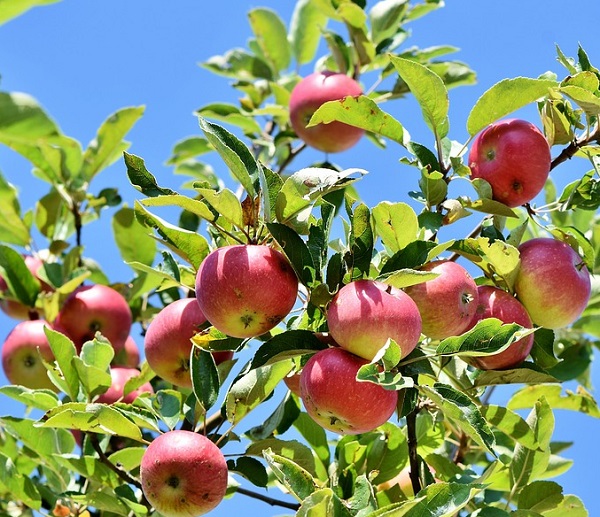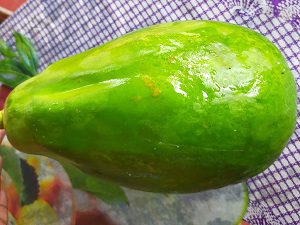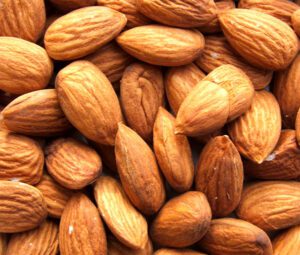Commercial apple farming is a very old business. Apple is a very common fruit and found throughout the world. It is very nutritious and very popular fruit. Apples are available in in all parts around the globe. Apple trees are cultivated worldwide and are the most widely grown species in the genus Malus.
Apple tree originated in Central Asia, where it’s wild ancestor (Malus sieversii) is still found today. And apples actually have been grown for thousands of years in Asia and Europe and were brought to North America by European colonists. Apple is a very important fruit in many countries. And it has religious and mythological significance in many cultures, including Norse, Greek and European Christian tradition.[1]
Apple trees are generally large in size if grown from seed. But today, commercial apple producers used to propagate apple cultivars by grafting onto rootstocks (which control the size of the resulting tree). Today, there are numerous varieties/cultivars of apples available throughout the world. Each of these varieties has especial characteristics. Different varieties are bred for various tastes and uses including cooking, cider production or eating raw.
Apple is actually a deciduous tree, generally standing between 6 and 15 feet tall in commercial cultivation and up to 30 feet in the wild. When cultivated, the size, shape and branch density are determined by rootstock selection and trimming method. Leaves of the apple trees are alternately arranged dark green-colored simple ovals with serrated margins and slightly downy undersides.
Today, apple is among the most popular fruits. Total worldwide production of apples in the year of 2018 was 86 million tones, with China accounting for nearly half of the total. Secondary apple producing countries are United States and Poland.
Nutrition and Uses of Apples
All parts of the fruit (including skin, but not the seeds) are suitable for human consumption. The core, from stem to bottom, containing the seeds, is usually not eaten and is discarded. These fruits can be consumed in many different ways: juice, raw in salads, baked in pies, cooked into sauces and spreads like apple butter, and other baked dishes. They are sometimes used as an ingredient in savory foods, such as sausage and stuffing. Apple is a very nutritious fruit. A raw apple is about 14% carbohydrates, 86% water and negligible content of fat and protein. According to healthline, one medium apple (around 182 grams) offers the following nutrients:
- Carbs: 25 grams
- Calories: 95
- Fiber: 4 grams
- Potassium: 6% of the RDI (Reference Daily Intake)
- Vitamin C: 14% of the RDI
- Vitamin K: 5% of the RDI
In a word, apples are a good source of fiber and vitamins. They also contain polyphenols, which may have numerous health benefits.

Health Benefits of Apples
Consuming apples daily has many health benefits. You are probably familiar with the common English-language proverb “An apple a day keeps the doctor away”. Here we are trying to describe about the top advantages of consuming apples.
- Apples are a very good source of fiber and vitamins. They also contain polyphenols, which may have numerous health benefits.
- Apples are good source of fiber, so they are filling. You will be hungry less. And thus apples may aid weight loss.
- Consuming apples regularly promote hearth health in several ways. Apples are high in soluble fiber, which helps lower cholesterol.
- Eating apples is linked to a lower risk of type 2 diabetes. This is possibly due to their polyphenol antioxidant content.
- Apples contain pectin, a type of fiber that acts as a prebiotic. This means it feeds the good bacteria in your gut.
- Apples have several naturally occurring compounds that may help fight cancer. Observational studies have linked them to a lower risk of cancer and death from cancer.
- Apples contain antioxidant and anti-inflammatory compounds that may help to regulate immune responses and protect against asthma.
- Consuming apples is also beneficial for promoting bone health, because it contains antioxidant and anti-inflammatory compounds.
- Apples contain compounds that may help protect your stomach lining from injury due to NSAID painkillers.
- According to animal studies, apple juice may help prevent the decline of neurotransmitters that are involved in memory.
- In a word, apple is very nutritious and safe for human health. You can consume apples daily.
Advantages of Apple Farming Business
Commercial apple farming is a very old and popular business. It is a very common business in many countries. There are numerous benefits/advantages of commercial apple farming business. Here we are trying to describe about the top advantages of commercial apple farming business.
- Commercial apple farming is a very old and popular business. Many people are already doing this business.
- If you are a beginner, you can learn more about apple farming from existing farmers.
- Commercial apple production is very profitable, and you will be able to make good profits from this business.
- You don’t have to worry about the future of this business. Because it is an old and established business.
- Apple trees are very hardy and grow easily, and it’s very easy to take care of them. You can easily take care of them, even if you are a beginner.
- Marketing apples is very easy. Because this fruit already has an established market demand and price. So, you don’t have to worry about marketing your products.
- Commercial apple farming is a profitable business. So, it can be a great employment source for the people. Especially for the unemployed educated people.
- Capital requirement in commercial apple farming business is relatively less. But you will get profits for many years.
- Apples are very nutritious and have numerous health benefits. You can enjoy fresh apples if you start your own apple production business.

How to Start Apple Farming Business?
Apple trees are very strong and hardy and they generally require less caring, and caring the plants is very easy and simple. You can learn practically from an experienced farmer in your area before starting this business commercially. You can take good care of the plants even if you are a beginner. Here we are trying to describe more information about starting and operating commercial apple farming business from planting, caring to harvesting and marketing.
Step 1. Select Good Site
You have to select a very good location for starting your apple farming business. Apple plants grow well in loamy soil which is rich in organic matter. Good drainage system is a must, because apple plants can’t tolerate water logging. pH range of the soil should be between 5.5% and 6.5%. Although, you can use your existing land if the land meet all the demands listed above.
Step 2. Prepare Soil
Preparing the soil perfectly before planting is very important for growing apple plants. Do ploughing, cross ploughing of land and then level the land. And then prepare the land in such way that water stagnation should not occurred in field. Because, apple plants can’t tolerate water logging. You should add as much organic content as you can while preparing the soil. Adding organic content will help the plants to grow well and produce more.
Step 3. Consider Climate Requirements
Apple plants can be grown in right climatic conditions. These plants can be grown at altitudes 1500 to 2700 meter above sea level.[2] Temperature during the apple growing season should be around 21°C and 24°C. These trees require between 100 cm to 125 cm of annual rainfall (evenly spread throughout the year). Too much of rainfall and fog near the fruit maturity period will result in poor fruit quality with improper color development of fruit and fungal spots on the fruit surface. Apple cultivation is not suitable where the high velocity of winds are expected.

Step 4. Choose Right Apple Variety
Currently, there are numerous varieties/cultivars available to choose from. You can choose any variety which grows well in your area. Consult with some existing farmers for better recommendation. Common and popular cultivars are Alice, Ambrosia, Ananasrenette, Arkansas Black, Aroma, Belle de Boskoop, Bramley, Cox’s Orange Pippin, Cox Pomona, Cripps Pink, Discovery, Egremont Russet, Fuji, Gala, Bloster, Golden Delicous, Goldrenette, Granny Smith, Honeycrisp, James Grieve, Jonagold, Lobo, Mclntosh, Pacific Rose, Red Delicious, Shampion, Stark Delicious, SugarBee, Summerred, Tellissaare, Yellow Transparent etc.
Step 5. Propagation
Commercial propagation of apple plants is done by budding and tongue grafting methods. Purchase the planting material required for apple farming from the registered nurseries.
Step 6. Purchase Plants
Apple plants are easily available in the areas where the plants grow. You can easily purchase from any of your nearest nurseries. Today, many nurseries have online presence. So, you can order the plants online.
Step 7. Planting
Apple plants can be planted at anytime. But it is recommended to plant the plants during January and February months. Average number of plants in an area of one hectare may range from 200 to 1250. Although, stocking density depends on numerous factors. Stocking density can vary depending on the planting system. 4 different types of planting density are implemented. Such as low, moderate, high and ultra high density. Generally less than 300 plants per hectare in the less density type, 300-500 plants in moderate density, 500-1300 plants in high density, and more than 1300 plants per hectare in high density type.

Step 8. Caring
Apple plants are very strong and hardy. They generally grow well in less caring and other management. Although, taking additional caring will help the plants to grow well and produce more. Here we are trying to describe more about the caring process in commercial apple farming business.
Fertilizing: Providing the plants with adequate fertilizers is very important for good growth of the plants. Provide adequate organic fertilizers (such as farm yard manure) along with other chemical fertilizers. The ratio of K, P, and N which is applied in an orchard of optimal fertility is 70:35:70 grams per year age of the tree. Use appropriate application of fertilizer for deficiency of boron, zinc, manganese and calcium.
Watering: Irrigation requirement in commercial apple farming is around 115 cm per annum which should be scheduled in 14 to 20 watering/irrigation. Watering should be provided at an interval of 6 to 10 days during the summer season, and at an interval of 3-4 weeks during the winter season. And at least 8 irrigation are required during the critical period (April to August), after fruit set.
Weeding: Weeds consume nutrients from the soil, and the plants suffer. So, timely and regular weeding is very important.
Inter-cropping: Inter-cropping is a great way to earn some extras. It also helps to minimize weed problem. Green manuring crops like bean and sunflower can be cultivated in the early years of apple planting in order to increase soil texture and nutrients of the soil.
Mulching: Mulching helps to retain moisture into the soil. It will also help to reduce the growth of weeds. You can use organic materials as mulch.
Training and Pruning: For getting good growth of the plants and good production, timely training and pruning is very important. The apple plants are trained as per growth habit and vigor of the rootstocks. The standard apple plants are trained on a modified central leader system to receive proper light. This improves fruit color and also minimizes the effect of heavy snowfall and hail. Spindle bush system is best suitable for high-density apple planting under mid hill conditions.
Step 9. Control Pests and Diseases
As we have mentioned above ‘apple trees are very strong and hardy’. And they are less susceptible to pests, diseases or other problems. The main pests in apple farming are eriosoma lanigerum, quadraspidiotus perniciosus, thrips rhopalantennalis, pseudoulacaspis sp. etc. And the main diseases found in apple farming are venturia, inaequilis, phytophthora cactorus, agrobacterium tumefaciens, sclerotium rolfsii, cankers, die-back diseases, etc. You can apply carbendazim, copper oxychloride, mancozeb and other fungicides for controlling the diseases.
Step 10. Harvesting and yield
Depending on the variety, the apple trees start bearing fruits from the 8th year. Apple productivity goes on increasing from the 8th year to 17th year, and afterward production remains constant up to 30 years. Lifespan of the apple trees can be extended up to even 40 years depending upon the climatic conditions. Generally the fruits are harvested before they are fully ripe.
There are many tasks/activities to follow after harvesting apples. Post-harvesting tasks are pre-cooling, grading according to their size and weight, storage, packing and transporting. Do all these activities very carefully. It’s not possible to tell the exact amount. Because exact number depends on numerous factors. On average, you can expect around 10-12 tonnes per hectare.

Step 11. Marketing
Marketing apples is very easy and simple. Apples have very good demand and value throughout the world. You will be able to easily sell your products in the local market.
These are the common steps and ways for starting and operating a successful apple farming business. Hope this guide has helped you! Good luck!







Thankyou sir , nice article on apple 🍎 farming.
I am interested in commercial apple farming business. I have more then 10 acres land. Is it possible to start commercial apple farming in Nadia, West Bengal, India?
No, your location is probably not suitable for commercial apple farming business. Please consider another fruit production business. Good luck!
Hi Sujit Malakar I have 5000 tons aplle in cold storage. I want sell my apples and india have big potantial for this but ı am not able to find a buyer in India can you help me? İf you can help me please contact with me ı can send you our products photos. İt could be profitable for both of us E-mail:[email protected]
Thanks